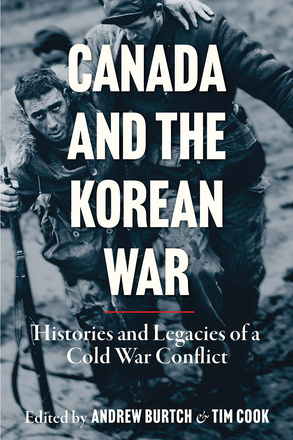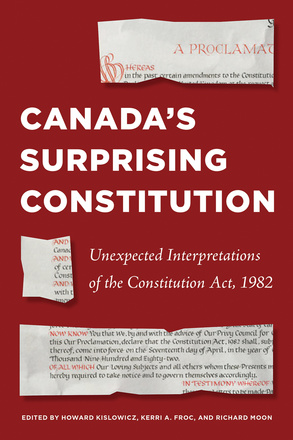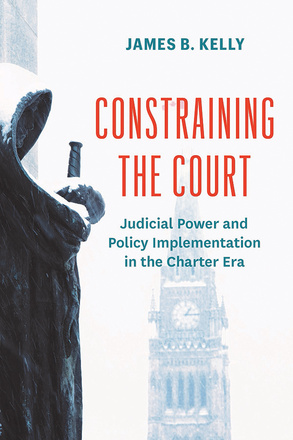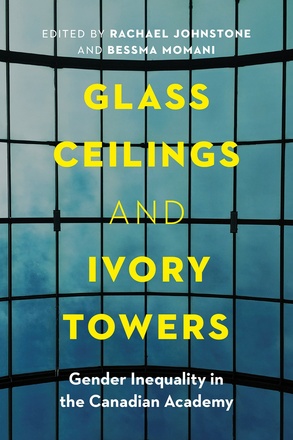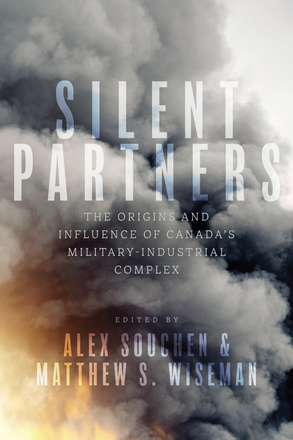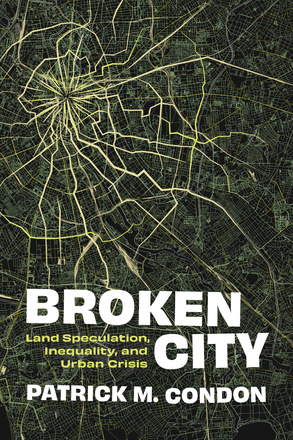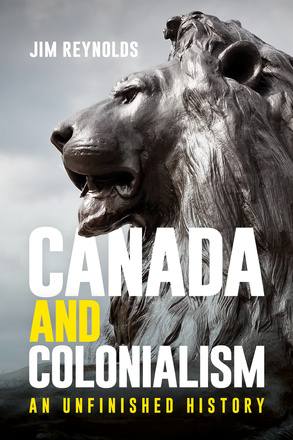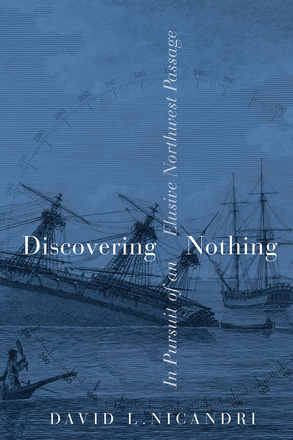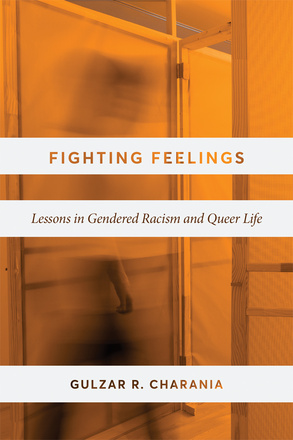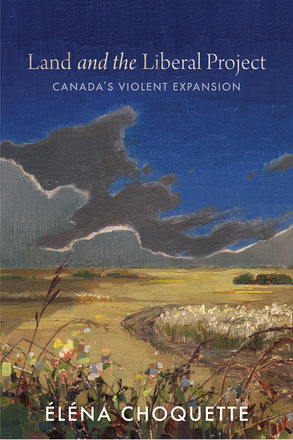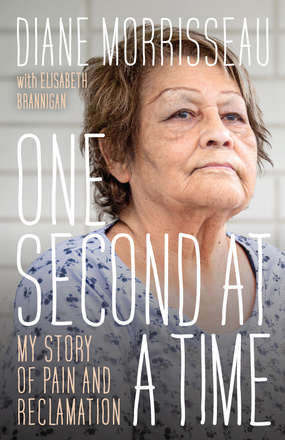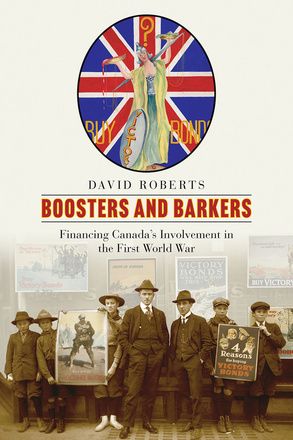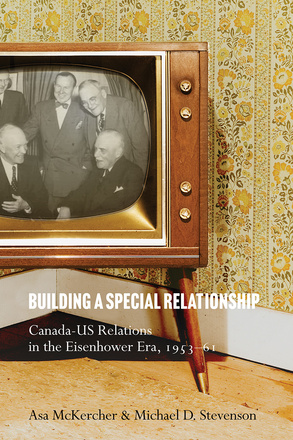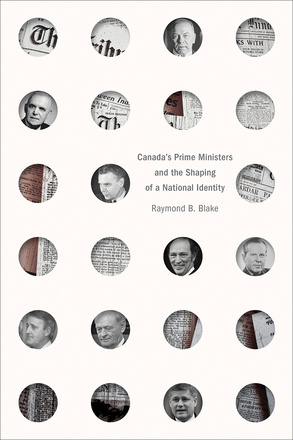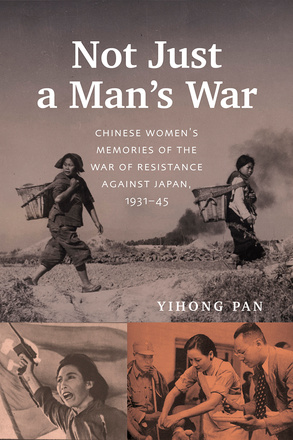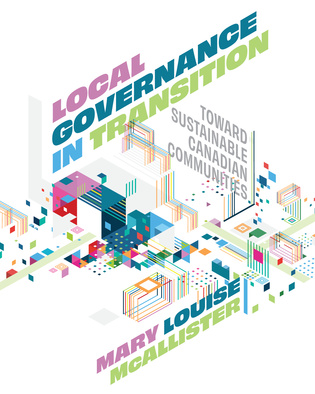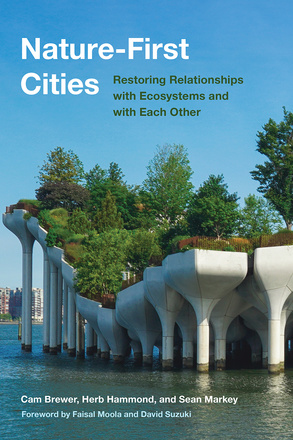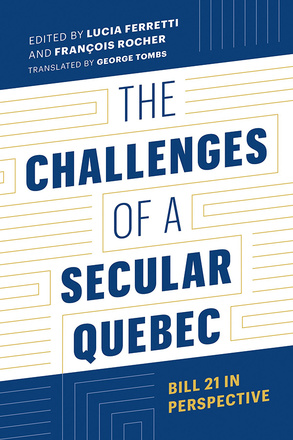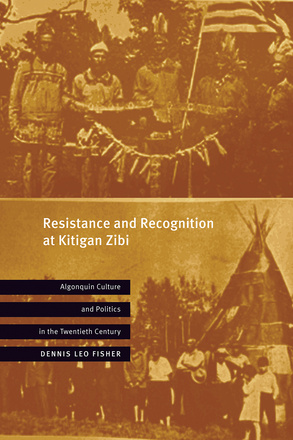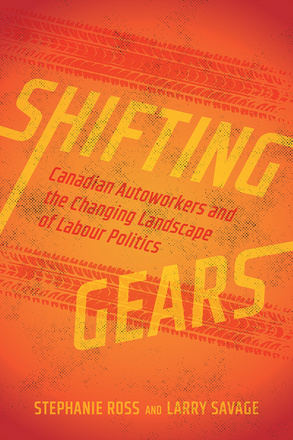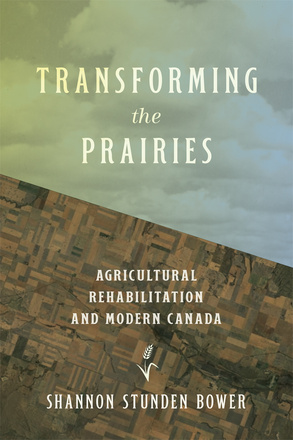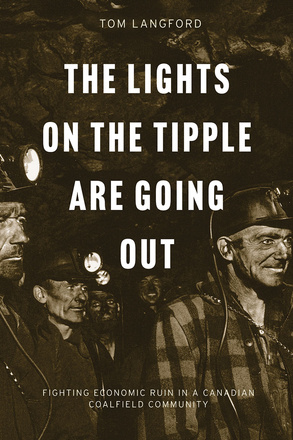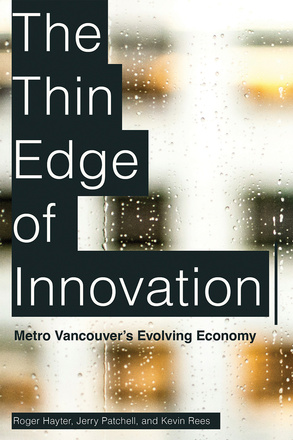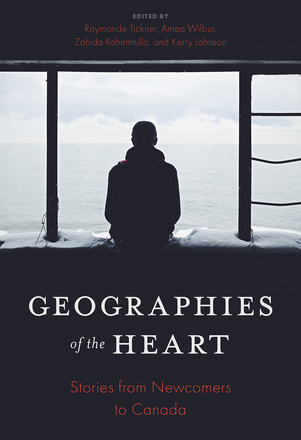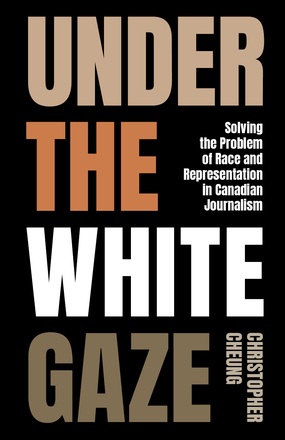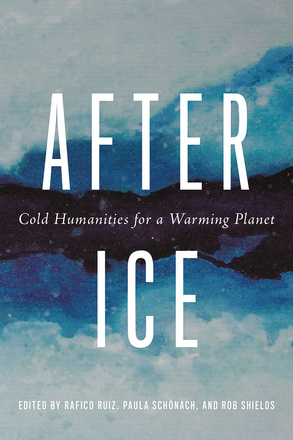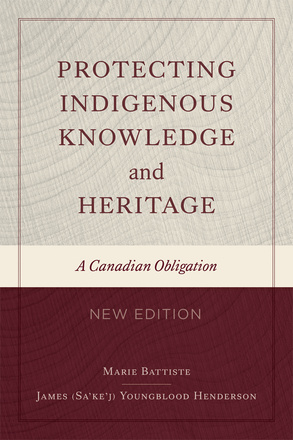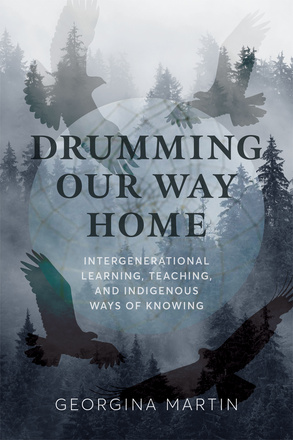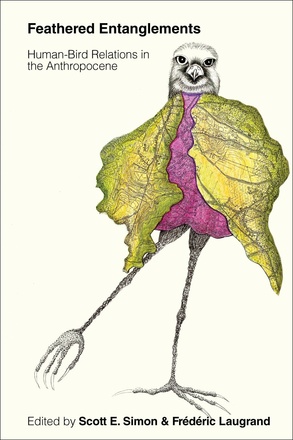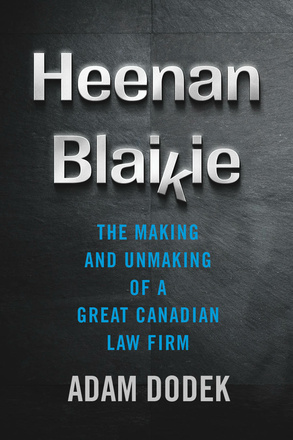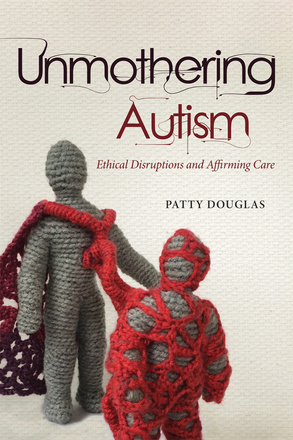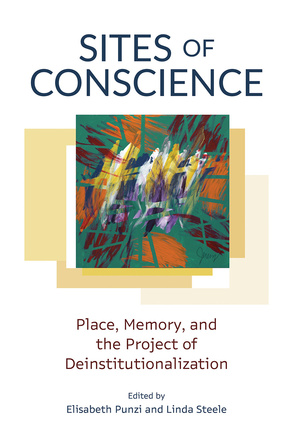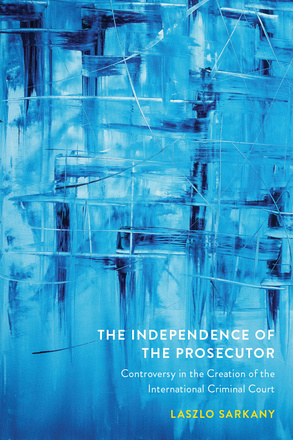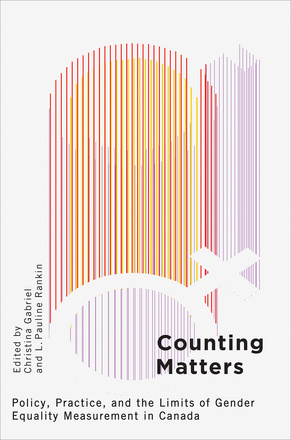Canada and the Korean War
Histories and Legacies of a Cold War Conflict
Canada and the Korean War synthesizes Canadian and global perspectives on a watershed conflict to explore its profound influence on international, diplomatic, and military history, public memory, and contemporary affairs.
- Copyright year: 2024
Canada’s Surprising Constitution
Unexpected Interpretations of the Constitution Act, 1982
Canada’s Surprising Constitution asks why the Constitution Act, 1982, keeps generating unexpected interpretations and outcomes.
- Copyright year: 2024
Constraining the Court
Judicial Power and Policy Implementation in the Charter Era
Constraining the Court considers what happens when a statute involving a significant public policy issue is declared unconstitutional – and government disagrees.
- Copyright year: 2024
Glass Ceilings and Ivory Towers
Gender Inequality in the Canadian Academy
Glass Ceilings and Ivory Towers amasses vital, data-driven research that both corroborates enduring accounts of inequality for women academics and offers pathways toward substantive policy change.
- Copyright year: 2024
Silent Partners
The Origins and Influence of Canada’s Military-Industrial Complex
Silent Partners delves into the shadowy world of security and national defence to shine a light on the influence they hold in Canadian society.
- Copyright year: 2023
Broken City
Land Speculation, Inequality, and Urban Crisis
Broken City argues that skyrocketing urban land prices drive our global housing market failure – so, how did we get here, and what can be done about it?
- Copyright year: 2024
Canada and Colonialism
An Unfinished History
Canada and Colonialism presents the history Canadians must reckon with before decolonization is possible, from the nation’s establishment as a settler colony to the discriminatory legacies still at work in our institutions and culture.
- Copyright year: 2024
Discovering Nothing
In Pursuit of an Elusive Northwest Passage
Quests to discover a navigable or usable Northwest Passage ended in failure, but as Discovering Nothing shows, the many attempts to find what nature did not provide led to the construction of its transcontinental equivalent, changing the landscape of North America forever.
- Copyright year: 2024
Fighting Feelings
Lessons in Gendered Racism and Queer Life
Fighting Feelings investigates the lived experiences of women of colour to reveal the complex ways that white supremacy is felt, endured, and navigated.
- Copyright year: 2023
Land and the Liberal Project
Canada’s Violent Expansion
Land and the Liberal Project explores the “improving” ideas that informed the expansion of Canada from coast to coast, exposing the justifications for state violence and appropriation of Indigenous territory, thus challenging our assumptions about Canadian sovereignty.
- Copyright year: 2024
One Second at a Time
My Story of Pain and Reclamation
A deeply personal history of colonialism’s corrosive effects on an Ojibway-Anishinabe woman who survives a traumatic childhood, becomes a teen mother, and eventually escapes unrelenting domestic violence to find hope and healing, dedicating herself to helping women and children like her former self.
- Copyright year: 2024
Boosters and Barkers
Financing Canada’s Involvement in the First World War
“Back him up! Buy Victory Bonds.” Boosters and Barkers examines the unrelenting financial demands of Canadian participation in the First World War, exploring the aims, methods, and implications of securing public support.
- Copyright year: 2023
Building a Special Relationship
Canada-US Relations in the Eisenhower Era, 1953–61
This book takes a compelling look at how bilateral diplomacy in an era wracked by the Cold War created a culture of cooperation between Canada and the United States that endures to the present day.
- Copyright year: 2024
Canada’s Prime Ministers and the Shaping of a National Identity
What is Canada? This new look at “Canada” shows how the country’s prime ministers have consciously worked to shape national identity through their speeches and rhetoric.
- Copyright year: 2024
Signs of the Time
Nłeʔkepmx Resistance through Rock Art
Drawing on a unique blend of Indigenous and Western sources, Signs of the Time explores Nlaka’pamux rock art making to reveal the historical and cultural meaning beneath its beguiling imagery.
- Copyright year: 2024
Not Just a Man’s War
Chinese Women’s Memories of the War of Resistance against Japan, 1931–45
Not Just a Man’s War uncovers the extraordinary stories of ordinary Chinese women during the horrific fourteen-year War of Resistance against Japan, from 1931 to 1945.
- Copyright year: 2024
Refugees Are (Not) Welcome Here
The Paradox of Protection in Canada
Refugees Are (Not) Welcome Here details the paradox of the simultaneous expansion and restriction of access to refugee rights in Canada.
- Copyright year: 2023
Local Governance in Transition
Toward Sustainable Canadian Communities
Local Governance in Transition presents a framework for conversations around technological, ecological, and economic challenges – and encourages innovative thinking for those interested in exploring sustainable solutions.
- Copyright year: 2024
Nature-First Cities
Restoring Relationships with Ecosystems and with Each Other
Nature-First Cities recognizes nature as the lead architect in the most essential of restoration projects – our cities.
- Copyright year: 2024
The Challenges of a Secular Quebec
Bill 21 in Perspective
The Challenges of a Secular Quebec opens up the debates that gave rise to a controversial law on state religious neutrality, taking an open-minded look at how secularism is understood and how it has imposed itself in the Quebec social space.
- Copyright year: 2023
Resistance and Recognition at Kitigan Zibi
Algonquin Culture and Politics in the Twentieth Century
Resistance and Recognition at Kitigan Zibi illuminates the traditional values and cultural continuity underlying twentieth-century politics in the largest and oldest Algonquin reserve in Canada.
- Copyright year: 2023
Shifting Gears
Canadian Autoworkers and the Changing Landscape of Labour Politics
Shifting Gears tells the story of how Canada’s largest private-sector union shifted its political strategy from an emphasis on transformative activism to transactional partnerships.
- Copyright year: 2024
Transforming the Prairies
Agricultural Rehabilitation and Modern Canada
Transforming the Prairies critically reassesses Canada’s Prairie Farm Rehabilitation Administration in light of its involvement in ecological changes and its role in consolidating colonialism and racism.
- Copyright year: 2024
The Lights on the Tipple Are Going Out
Fighting Economic Ruin in a Canadian Coalfield Community
- Copyright year: 2024
The Thin Edge of Innovation
Metro Vancouver’s Evolving Economy
The Thin Edge of Innovation charts the origins, potential, and pitfalls of Metro Vancouver’s entrepreneur-led innovation economy, including the tremendous growth of high-tech, apparel, and consumer-oriented life-style businesses in the city.
- Copyright year: 2024
Geographies of the Heart
Stories from Newcomers to Canada
In Geographies of the Heart, eighteen newcomers to Canada share their journeys, reveal the conditions that necessitated them leaving their homes, and challenge assumptions about newcomers’ lives in Canada.
- Copyright year: 2024
Under the White Gaze
Solving the Problem of Race and Representation in Canadian Journalism
Blending research with a reporter’s journey through the industry, Under the White Gaze takes a pointed look at how people of colour are routinely missing, marginalized, or misrepresented in Canadian journalism, and explores what can be done to make our media more inclusive.
- Copyright year: 2024
After Ice
Cold Humanities for a Warming Planet
After Ice asks us to consider how we define the experience of cold – its temporal, spatial, and material qualities – as cycles of freezing and thawing change across our warming planet.
- Copyright year: 2024
Ancillary Police Powers in Canada
A Critical Reassessment
Ancillary Police Powers in Canada investigates the scope of police powers under Canadian common law, and the implications for our rights, freedoms, and individual liberty.
- Copyright year: 2024
Protecting Indigenous Knowledge and Heritage, New Edition
A Canadian Obligation
Against the backdrop of the United Nations Declaration on the Rights of Indigenous Peoples, Protecting Indigenous Knowledge and Heritage examines past and emerging issues in the recognition of Indigenous inherent human rights and knowledge within a Canadian legal context.
- Copyright year: 2024
Drumming Our Way Home
Intergenerational Learning, Teaching, and Indigenous Ways of Knowing
Drumming Our Way Home takes readers on an autobiographical journey to recover Indigenous identity, demonstrating how storytelling – aided by a hand drum – can open up a new world of pedagogy and culture-based learning.
- Copyright year: 2024
Feathered Entanglements
Human-Bird Relations in the Anthropocene
Feathered Entanglements investigates human–bird relations across the Indo-Pacific and shows what birds can teach us about how to live with other species in the Anthropocene.
- Copyright year: 2024
Heenan Blaikie
The Making and Unmaking of a Great Canadian Law Firm
What really happened at Heenan Blakie? This is the ultimate account of what went on behind the scenes of the largest law firm dissolution in Canadian history.
- Copyright year: 2024
Home Truths
Fixing Canada's Housing Crisis
With Canadians burdened by the world’s highest household debt after decades of failed housing policy, Home Truths: Fixing Canada’s Housing Crisis shows what went wrong, and how it can be fixed.
- Copyright year: 2024
Unmothering Autism
Ethical Disruptions and Affirming Care
Unmothering Autism rethinks autism and mothering to reveal what it means for us to live well together in, and through, difference.
- Copyright year: 2024
Pentecostal Preacher Woman
The Faith and Feminism of Bernice Gerard
Evangelical pastor, talk-show host, politician, musician. Pentecostal Preacher Woman explores the complex life of Bernice Gerard, one of the most influential spiritual figures of twentieth-century British Columbia.
- Copyright year: 2024
Sites of Conscience
Place, Memory, and the Project of Deinstitutionalization
Sites of Conscience charts the importance of public engagement with histories, memories, and lived experiences of institutions in forging new directions in social justice with and for disabled people and people experiencing mental distress, in a context where deinstitutionalization has failed to fully recognise, redress, and repair the ongoing impacts of institutions.
- Copyright year: 2024
The Independence of the Prosecutor
Controversy in the Creation of the International Criminal Court
This compelling investigation shows how an independent prosecutor, who can initiate investigations without states’ assent, became a key part of the International Criminal Court.
- Copyright year: 2024
After Redress
Japanese Canadian and Indigenous Struggles for Justice
- Copyright year: 2025
Counting Matters
Policy, Practice, and the Limits of Gender Equality Measurement in Canada
Counting Matters emphasizes the importance of gender measurement as a distinct policy and social phenomena while exposing the flaws of the technocratic assumption that all aspects of gender equality can be strictly quantified.
- Copyright year: 2024

